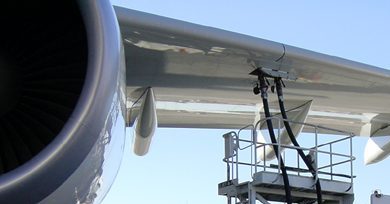Jet fuel dipped back below $90 a barrel as oil prices eased slightly in July, but the upward trend remains in place, IATA has said in a report.
The jet fuel price, however, remains almost 40% higher than their level of a year ago, the International Air Transport Association said in its latest ‘Airlines financial monitor’.
Jet fuel had risen to a high as $94/b in May, it said. The upward trend in global oil prices since early 2017 has been driven by a combination of a gradual reduction in oil inventories, as well as geopolitical developments.
Premium-class passengers accounted for 5.4% of total international origin-destination traffic in the first five months of 2018 – unchanged from the share seen in the same period of 2017, IATA said.
As IATA noted before, premium passenger growth has continued to modestly lag its economy counterpart on the two-largest premium markets in terms of revenue – the North Atlantic and Europe-Asia. The underperformance of the premium cabin has been starker on routes to/from South America, as well as between Europe and the Middle East.
However, this has been offset in part by stronger showings for premium-class demand to, from and within Asia, and within Europe.
Despite rising input costs, there are increasing signs of renewed downward pressure on passenger yields, IATA said.
Meanwhile, having trended upwards since mid2017, yields in the premium-class cabin also showed signs of weakness in May. This looks to have been felt reasonably evenly across major markets and may reflect the impact of increased trade tensions. Given the importance of premium travel to industry financial performance, IATA said it will continue to monitor developments closely.
Industry-wide revenue passenger kilometres (RPKs) grew by 7.8% year-on-year in June – up from 6% in both April and May.
After a 0.5% monthly fall in May, RPKs rebounded by 1.4% in June relative to the previous month.
The key point is that passenger demand was carrying solid momentum in seasonally adjusted terms coming into the peak period for demand during the northern hemisphere summer.
The year-on-year growth in industry-wide freight tonne kilometres (FTKs) slowed to 2.7% in June – almost half its five-year average pace…



